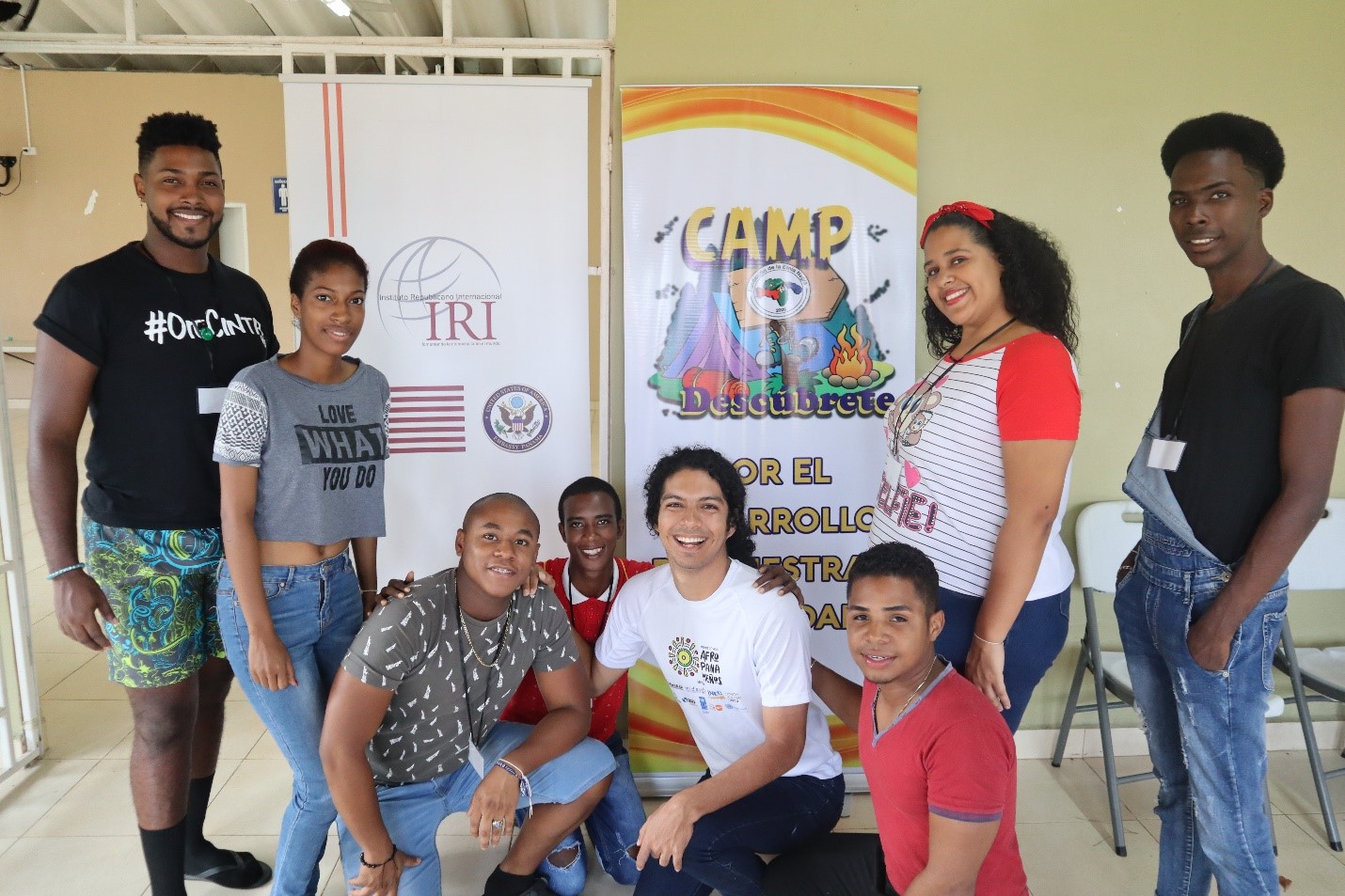Strengthening Panama’s Afrodescendent Civil Society Organizations

This month, Panama commemorated the 117th anniversary of its independence from Colombia – a feat that was in large part secured by the province of Colón and the Afrodescendant population who halted the advance of Colombian troops. In honor of the Afro-Panamanian commitment to their country’s democracy, the International Republican Institute (IRI) is shining a spotlight on their continued advocacy for a more inclusive and representative government.
The province of Colón is one of the centers of Afrodescendant culture in Panama. As a port city at the height of the shipping age, it played an important commercial role in Panama’s history and economy. However, the province’s development has been undermined by high rates of unemployment, poverty and a lack of educational and professional opportunities for its nearly 40,500 residents. This inequality is even more stark among Afro-Panamanians, who comprise roughly 15 percent of the population and are disproportionately affected by the country’s economic problems.
Due to fears of discrimination, many Afro-Panamanians do not identify their ethnicity on the national census and remain underrepresented in population statistics. Additionally, limited educational and economic opportunities have prevented many Afro-Panamanians from participating in the political process, thus limiting their representation in public policies. As a result, many Afro-Panamanian civil society organizations (CSOs) lack the financial and technical resources and do not have the necessary skills or knowledge to effectively promote their interests.
In line with our mission to strengthen democratic participation for all Panamanians, IRI has partnered with Colón’s Black Ethnicity Foundation (Fundación de la Etnia Negra, FEN), a CSO dedicated to promoting Afrodescendant culture, educating Afro-Panamanians about their rights and equipping youth with the skills to overcome racial discrimination.
IRI has collaborated with FEN since 2018 to strengthen its capacity for advocacy and amplify the voices of Afro-Panamanians across the country. IRI first assessed FEN’s organizational strengths and areas of opportunity across eight key areas, finding that the group needed to reinforce their communications, advocacy and fundraising. To build up FEN’s capacity in these spheres, IRI partnered with the organization to implement a training curriculum designed to address these weaknesses and improve its project management knowledge.
Equipped with the tools to improve their communications, advocacy and fundraising, FEN volunteers designed and conducted their own advocacy project with the support of IRI seed funding. The resulting project, Descubrete, focused on promoting the rights of Afro-Panamanians and empowering youth to become leaders and make their demands heard. IRI mentored FEN throughout the project, and once it was completed, reevaluated the organization across the same eight areas to assess if and how its capacity improved.
IRI found that because of FEN’s self-led project, the organization’s communication, advocacy and fundraising capabilities grew by leaps and bounds. For example, its social media strategy engaged 1,187 people and provided critical information on how citizens and the government can support Afrodescendant rights. FEN widened its network of partners, allowing it to amplify its message with key government stakeholders, and connected with international foundations and applied for external funding for the first time, expanding its fundraising capabilities and resources.
Democracies need strong civil societies to advocate for citizens’ needs – especially for segments of the population that have been historically marginalized or oppressed. As Panama’s democracy continues to strengthen, IRI remains committed to ensuring that the voices of all Panamanians are heard by their government.
Top